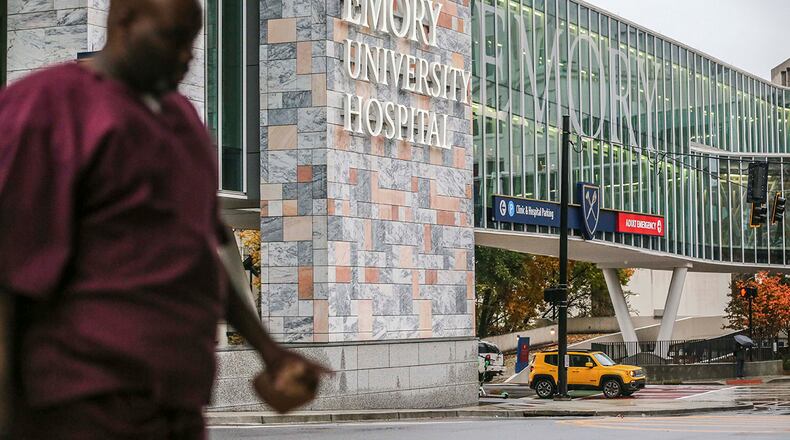Challenging times test us in many ways. They also offer an opportunity for introspection and learning, allowing us to gain a more complete appreciation for who we are, our mission and values.
On the afternoon of Dec. 7, a ruptured pipe sent water cascading through multiple floors of Grady Memorial Hospital in downtown Atlanta. As the full extent of damage came into focus, it was clear this would be far more than a simple clean-up. Some 220 of Grady’s 700 beds were suddenly unavailable, impacting operations for Grady and, soon thereafter, Atlanta.
Ambulances were diverted. Sick patients had to be moved. Neighboring hospitals saw an increase in visits to their emergency rooms already strained by a busy December and the surge of flu season. A two-foot water pipe had, in effect, jolted the entire health care infrastructure in metro Atlanta.
As the CEO for Emory Healthcare, I quickly learned about the leak. With several of our hospitals neighboring Grady, the ripple effect was felt within hours.
It’s times like this when one learns the power of asking a simple question – “How can we help?”
Health care is a competitive business. The crisis at Grady, however, underscores a central tenet in our industry and one of our core values at Emory – caring. When a crisis arises, the health care community can and does work together.
In the days following the leak, Grady transferred over 30 patients to four of our hospitals. Several other hospitals in the metro Atlanta area also moved quickly to implement and coordinate emergency response plans. On Jan. 13, Emory took further steps, making additional care spaces available at Emory Decatur Hospital for obstetrics patients as well as 30 dedicated beds at Emory Hillandale Hospital for patients being transferred directly from Grady.
Emory and Grady each have storied histories that are deeply woven into the fabric of metro Atlanta. Grady is a recognized leader in trauma and other areas of acute care, is a core part of our community, and represents a critical safety net hospital for Atlanta with a deep commitment to the underserved. Emory is the state’s largest academic health care system renowned for pioneering medical research, educating the next generation of health care workers and delivering exceptional care through its 11 hospitals and numerous clinics.
The partnership of Emory and Grady goes back to the foundation of Emory School of Medicine in 1915. Grady Memorial Hospital is staffed by Emory and Morehouse physicians with Emory having over 700 physicians practicing there. It may come as a surprise to some that 80 percent of Emory’s more than 1,300 medical residents and fellows spend time caring for patients at Grady. This longstanding partnership has benefited patients in Atlanta and extends to all reaches of the state as approximately half of Emory resident graduates go on to practice in Georgia.
An additional lesson we can learn from the flood at Grady is the potential risk to communities that depend upon hospitals every day. In Atlanta, we likely take for granted the fact that there are many excellent health care facilities throughout the city. Metro Atlanta — home to about 6 million people — was able to quickly triage and largely absorb the loss of this critical resource.
Imagine if something similar happened in a rural part of the state where hospitals and health care facilities are in shorter supply? Since 2010, seven rural hospitals have closed and more than two dozen others are at high financial risk according to a 2019 report by the consulting group Navigant. As a community, we need to ensure our health care systems receive appropriate support to remain strong and ensure they are capable of responding to the thousands of patients in need every day across our state.
I am proud to be part of an organization like Emory, to partner with a great institution like Grady, and to be a member of an industry where caring and compassion are central to our mission. In a world increasingly filled with polarization, it is nice to know this still exists. We should not take it for granted.
Jonathan S. Lewin, M.D. is CEO, Emory Healthcare and executive vice president for health affairs, Emory University.
About the Author
Keep Reading
The Latest
Featured


